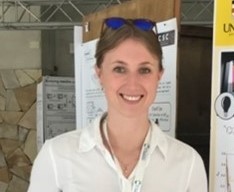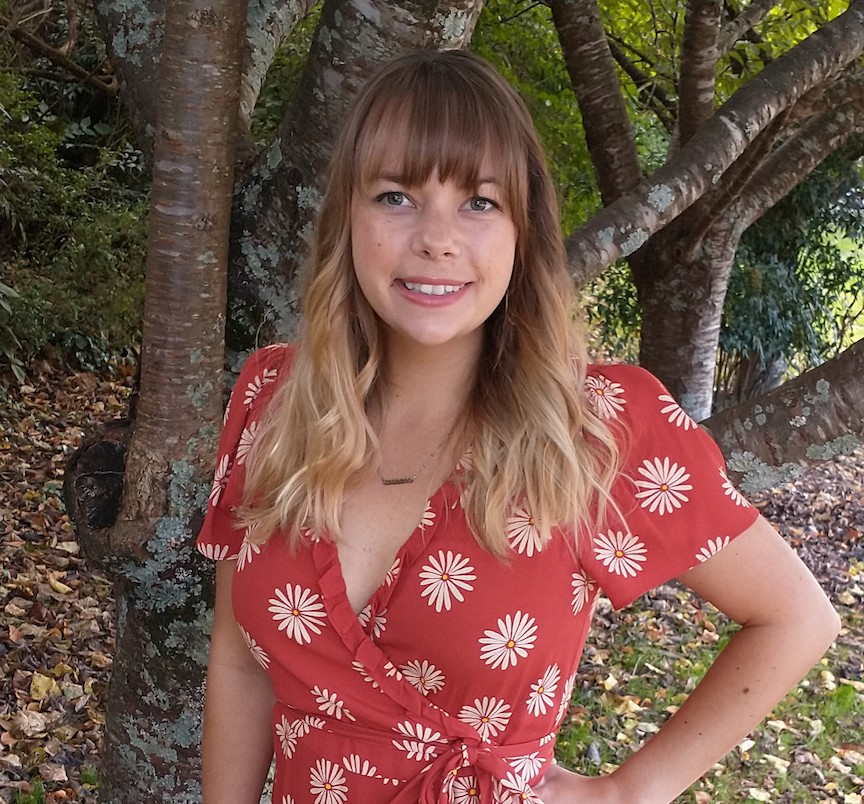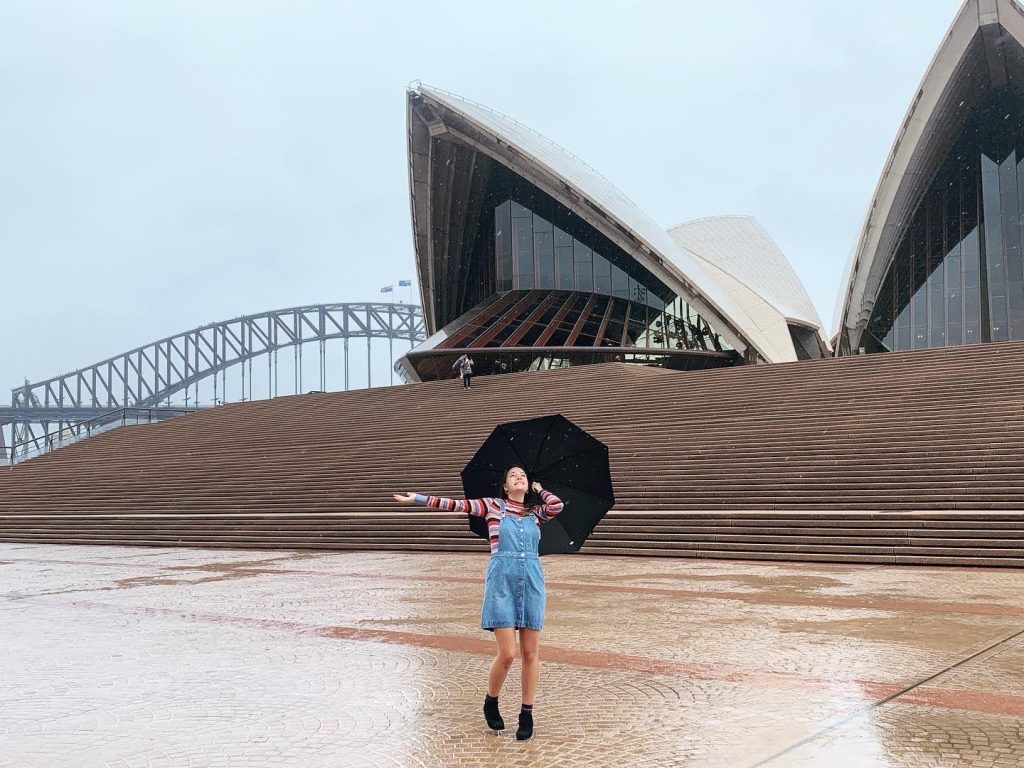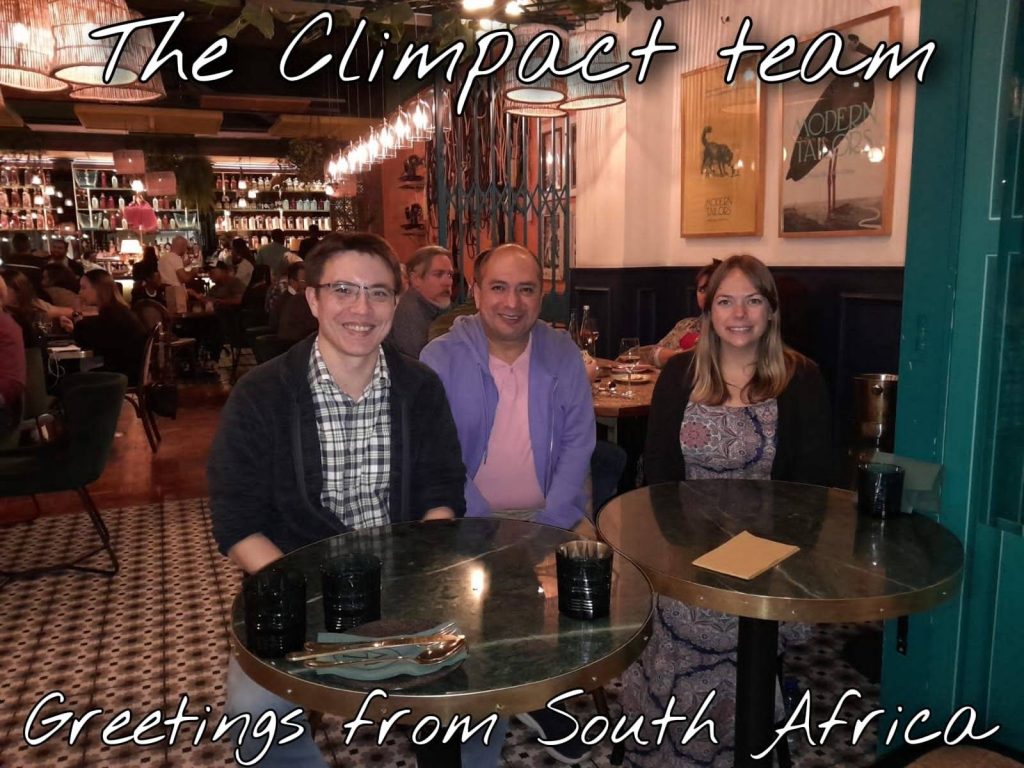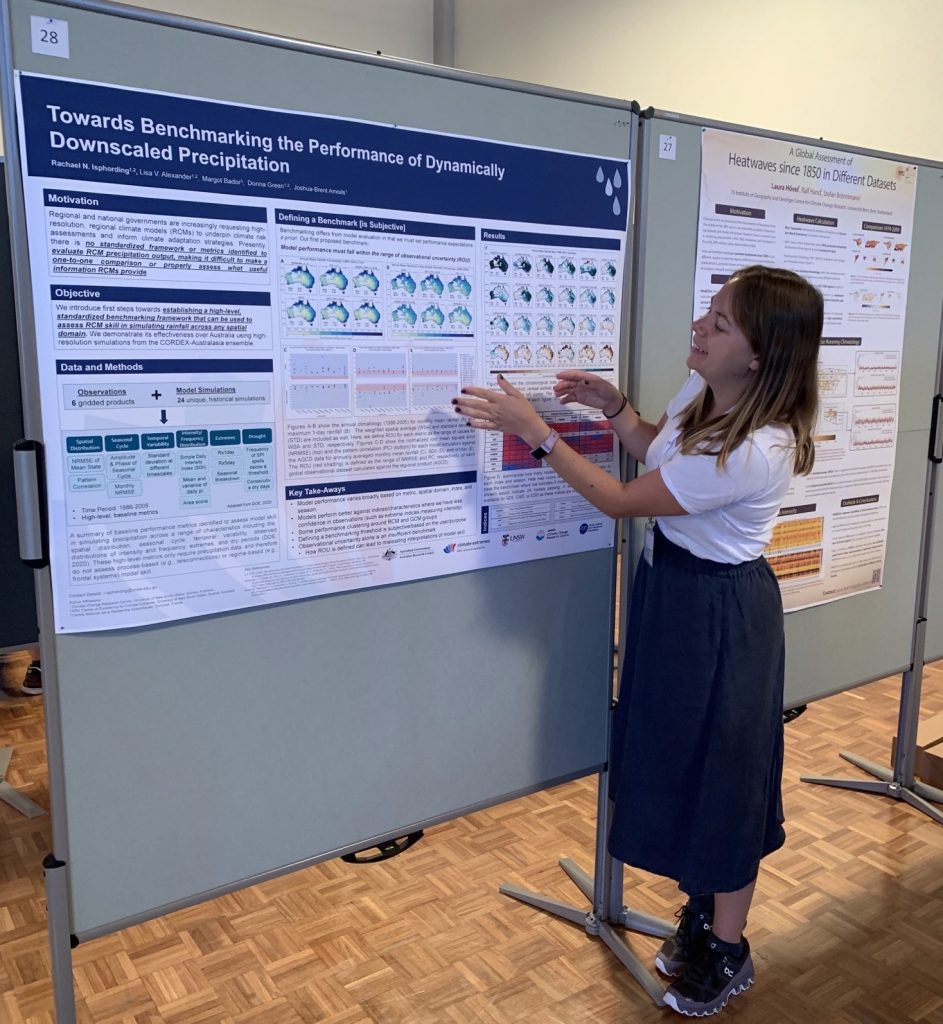By Inna Osmolovsky
Laura is a third year PhD student in the School of Chemistry. Her research focuses on photo-switches: molecules that reversibly change their structure when exposed light. These reversible structural changes can be used in the development of smart materials, to activate drug molecules or as energy storage alternatives. Laura’s research focuses on how exposure to light of certain molecules can alter the acidity (pH) level of chemical solutions. Many chemical processes are governed by acidity levels for example the functionality of enzymes in our body. Laura’s research offers a method to externally control such chemical processes with light.

Because light is a renewable resource, understanding how to harness it interested Laura long before she started her PhD. Interestingly, her academic career started in engineering, but after a year Laura understood that this wasn’t a good match for her and despite a lot of self-doubts decided to switch to a degree in chemistry. This proved to be a much better fit for her, she enjoyed studying, met amazing friends, and later decided to pursue a master’s degree in chemistry.
When the time came to apply for a PhD, Laura decided to explore options outside of Germany, her home country. “I literally searched online for “photochemistry, Australia, PhD”, the web page of my current supervisor popped up and I contacted him”. Her, then future, supervisor was very enthusiastic, and this was how Laura came to Australia to pursue her PhD.

Her day-to-day work varies with the different stages of her projects. New projects usually begin with reading and gathering information, providing Laura with an important background for the next stages. Then Laura starts off with synthesizing new molecules, analyzes how they react to light and develops models based on these measurements. Because Laura’s experiments are unique, involving irradiation while analyzing the reaction, she needs to creatively adapt existing instruments or measurement techniques, as they weren’t built to involve irradiation. She loves how variable her work is and how she gets to experience and learn new skills.

One of the most exciting moments of Laura’s PhD was when she discovered that the light sensitive molecules she studied were able to cause a much greater change in pH than what was previously described. This experience was very validating for Laura, helping her to become more confident in her abilities as a scientist and researcher.
But Laura states that research can also be challenging – sometimes an experiment that seems very important and would determine the future of a project doesn’t work on the first go or needs some fine tuning. Laura says she learned to manage her expectations with such experiments – to approach them with patience and view them as a process rather than an end goal. Viewing these challenges as growth opportunities helps Laura to persevere.
Outside of her PhD Laura enjoys rock climbing, hiking, and spending time in nature. These activities help her both physically and mentally and are a great way to recharge from stressful weeks – climbing, especially, motivates her on bad days.

Laura joined the Women in Maths and Science Champions program to meet fellow scientists, to reconnect and establish a network, especially after two years of COVID. This experience taught her how to become a role model, how to own her voice as a scientist and how to break away from her comfort zone. In her role, she enjoyed finding creative ways to inspire girls to pursue careers in science, and to stay curious.
Follow Laura on Twitter!

